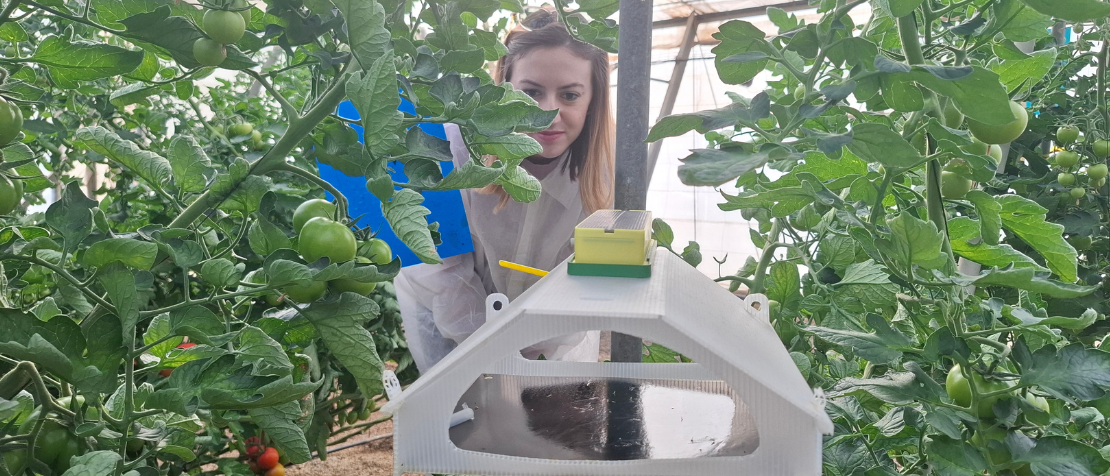Twinning for digital agriculture
Bosnia and Herzegovina’s pilot Digital Villages learn from Spain’s Almería SmartAgriHub

©FAO
As part of the Digital Villages Initiative (DVI), the Food and Agriculture Organization of the United Nations (FAO) has facilitated a twinning study tour between pilot digital villages in Bosnia and Herzegovina and the Almería SmartAgriHub in Spain. Over a week in February 2025, representatives from these villages – alongside key institutions such as the University of East Sarajevo Faculty of Engineering and the Faculty of Agriculture – participated in an in-depth knowledge exchange. The goal of the participants from Bosnia and Herzegovina was to learn from Spain’s pioneering agricultural innovation model and explore the potential to implement similar strategies in their own communities.
Bosnia and Herzegovina’s Digital Village Initiative
Since joining the DVI in 2021, Bosnia and Herzegovina has initiated digital transformation efforts in the village of Mokro (Pale municipality) and the rural communities of Brežani and Tržišće (Kakanj municipality). These efforts focus on enhancing agricultural productivity, sustainability, and market access for traditional local products through digital tools.
A key driver of this transformation is the newly established Centre for Digital Innovations, which aims to develop innovative solutions to support small agricultural producers. In this model, students and professors from the Faculty of Engineering and the Faculty of Agriculture collaborate with partners from local communities, businesses, and international organizations.
Twinning study tour: key lessons from Almería’s agricultural success
The twinning study tour was designed to strengthen ties between regional smart and digital villages while promoting knowledge exchange and technology transfer. Participants from Bosnia and Herzegovina gained firsthand insights into how Almería successfully combined technological advancements with organizational evolution, strong stakeholder cooperation, continuous knowledge exchange, and the integration of innovative technologies to transform its rural economy. Once an arid, resource-poor region relying on traditional farming, Almería has undergone a remarkable transformation, becoming a global leader in digital agriculture.
In the mid-20th century, Almería was among the poorest and most arid regions of Spain, characterized by infertile land, scarce rainfall, and minimal infrastructure. Harsh environmental conditions, soil degradation, and market constraints rendered agriculture increasingly unsustainable. However, in the 1970s, local farmers revolutionized the sector by adopting cost-effective greenhouses, implementing water-efficient techniques like drip irrigation, and cultivating high-value crops such as tomatoes and peppers. Cooperatives played a pivotal role in strengthening the industry by improving access to financing, technology, and distribution networks.
At the heart of this transformation is the Almería SmartAgriHub, a key driver of agricultural, technical, and organizational innovation. Led by COEXPHA, the Association of Fruit and Vegetable Producers of Almería, the hub fosters cooperative work between farmers, academia, and technology providers, and promotes smart farming solutions, digital tools, and climate-resilient technologies. Digital technologies now permeate every stage of the agricultural value chain – from greenhouse cultivation to distribution, processing, and marketing – driving success through innovation, strong cooperative networks, technological advancements, and a thriving export market.
Almería’s success stems from a highly collaborative ecosystem where farmers, technology providers, government institutions, and research bodies work together and learn from each other. The strong link between academia, agricultural advisory services, and farmers ensures a continuous transfer of knowledge, leading to sustained improvements in business operations. Agricultural advancements in the region were not solely driven by technology but by a well-coordinated system of knowledge-sharing and adaptability, ensuring effective implementation and long-term sustainability.
Digital technologies are introduced through experimental stations in a living lab methodology where farmers can experiment in real-world conditions and assess innovations and assess their practicality. This firsthand approach fosters innovation and ensures that solutions are developed and refined in collaboration with the community.
Peer-to-peer learning has also been a driving force behind Almería’s agricultural transformation, as greenhouse clustering has enabled farmers to share knowledge, experiences, and best practices. In greenhouse vegetable production, smart technologies are widely used for climate monitoring, irrigation, plant nutrition, and pest control. Advanced tools such as artificial intelligence, big data analytics, and robotics are already embedded in research activities and are gradually making their way into mainstream agricultural practice.
Additionally, online training and education platforms have enhanced knowledge transfer, helping farmers and farm workers acquire new skills more efficiently. AI-driven courses are gaining popularity, reflecting a growing enthusiasm among farmers to integrate advanced digital tools into their operations.
Applying Almería’s model to FAO’s Digital Villages Initiative
FAO’s pilot digital villages can gain significant value from studying and applying the lessons of Almería’s agricultural transformation. The Spanish experience highlights that digitalization must be accompanied by institutional and organizational development, ensuring that new technologies are both practical and widely accessible. For the farmers from Bosnia and Herzegovina, a key takeaway from Almería is the need for applied and participatory research, where farmers are directly involved in assessing whether innovations align with their needs, ensuring relevance and usability.
The twinning initiative between Bosnia and Herzegovina and Almería SmartAgriHub represents a crucial step in this direction. By learning from the Spanish successes and adapting its best practices to local conditions, FAO’s Digital Villages Initiative can help bridge the gap between traditional agriculture and modern digital farming, creating new opportunities for rural economic development.
This collaboration is not just about technology transfer—it is about building long lasting relationships and a sustainable and inclusive agricultural future, where smallholder farmers have the tools, knowledge, and networks they need to thrive in the digital age.
